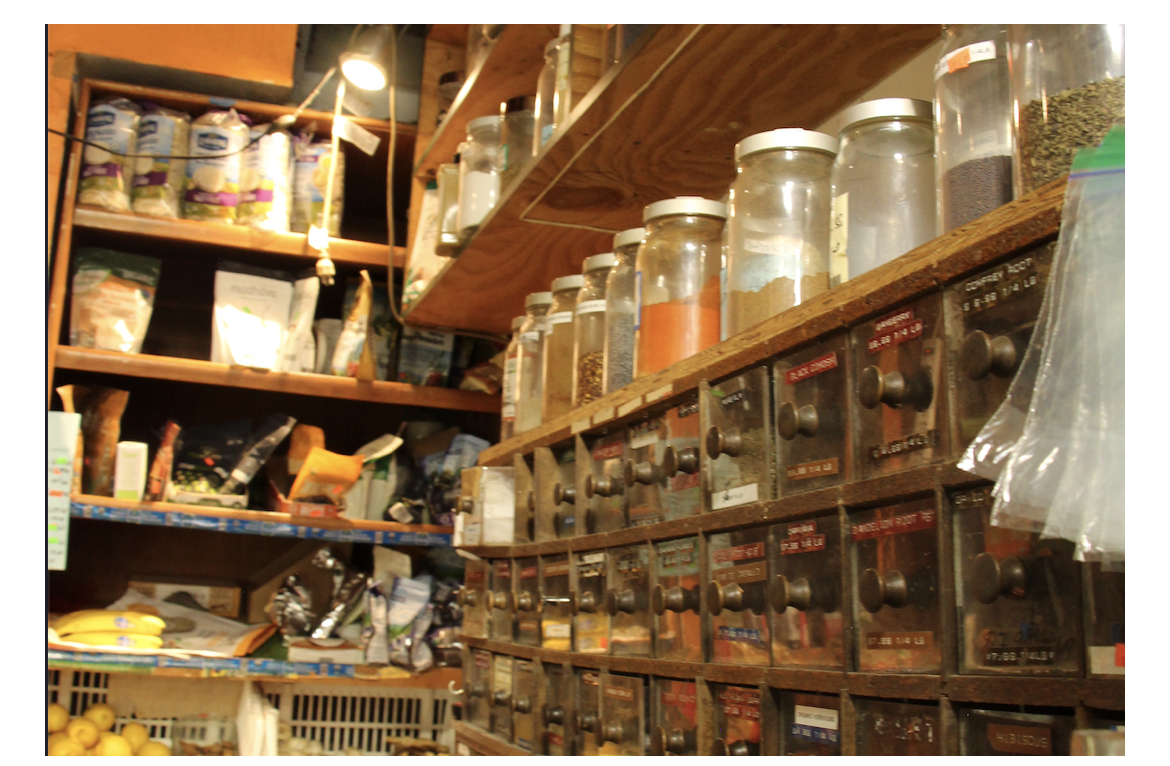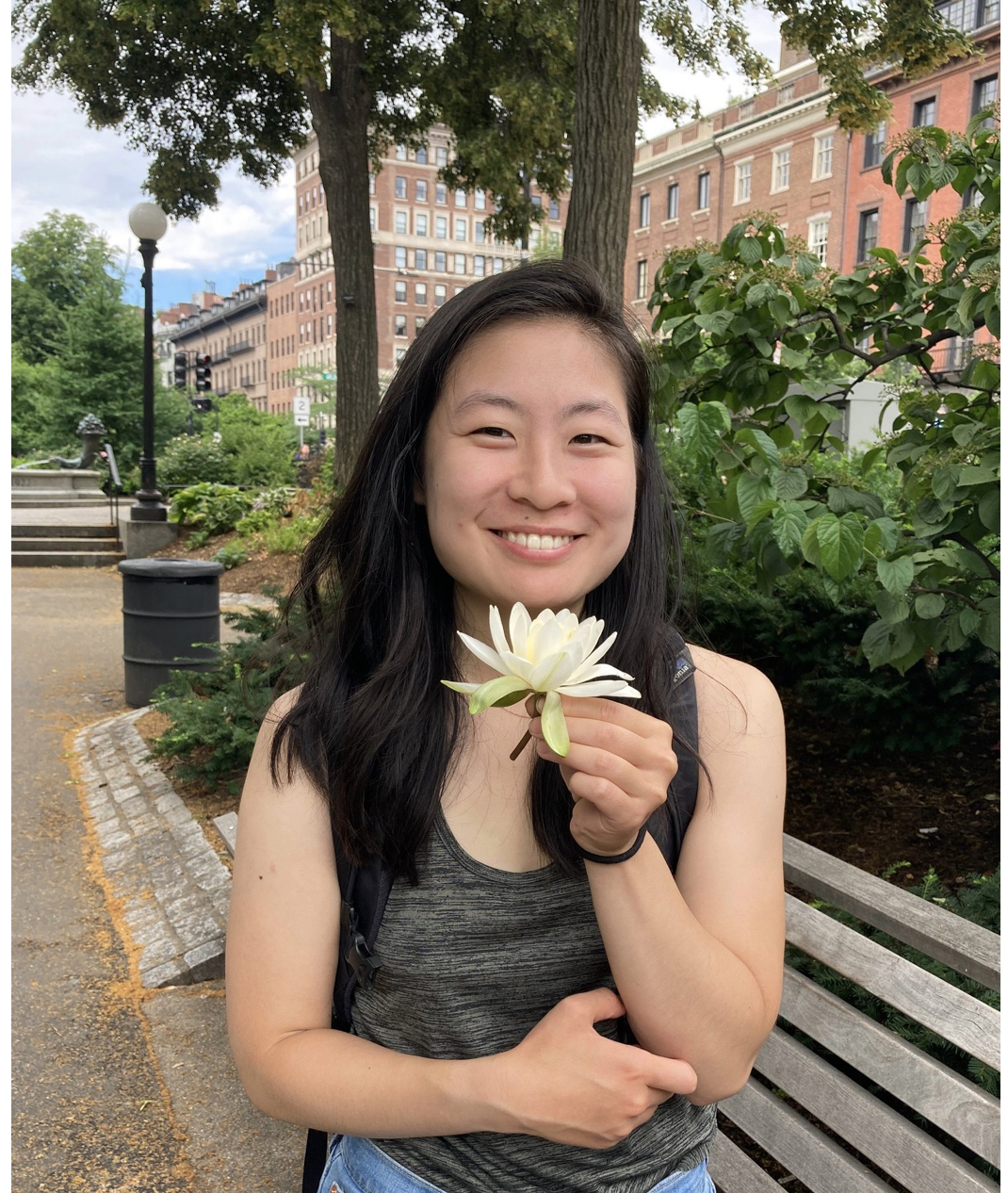Emily Wang’s interest both in healthy food and maximizing sustainability in daily life goes back to her teenage years growing up in Michigan. These priorities developed through her graduation from Columbia in 2022 and remain important today. What’s reached a heightened emphasis for her is maintaining practices that minimize plastic waste and its connection to the foods she buys that are available in bulk. Through this focus, Emily produces very little plastic waste. As a chemical engineer, she also works in a sustainability-related clean-tech industry focused on renewable energy storage.
Back in the days when she lived in the campus dorms, Emily discovered Creative Health Food at 2801 Broadway. She was drawn in by the character of the shop that recalled an old-time apothecary, but rather than pills and potions, what was sold were beans, a large variety of organic produce, nuts and dried fruit, and dietary supplements. Emily’s shopping routine involved bringing her own reusable containers. “I’d head straight to the back and scoop rolled oats from the big paper sack and carefully unscrew jars of cinnamon and cumin, loading up the repurposed bags I’d brought. Then I’d go to the bins in the front and get a couple of scoops of red lentils and nuts. The employee would weigh the bags…” It was natural that she consulted occasionally with shop owner Chuck Munn. She found him polite and helpful.
“I feel that although I’ve always been health-aware, my knowledge and behaviors have certainly evolved over the years,” she said.
In 2021, by then working in Boston, Emily had started a blog, Electronic Void, which she said relates to “anything I’ve been thinking about but mostly to sustainability.” On a visit to the Upper West Side, she happily found that Creative Health Food was still doing business and its owner agreed to be interviewed for her blog. He was very forthcoming. In her post, “A conversation with Chuck,” Emily included his description of how he grew up on his parent’s farm in South Korea and how that life supported his own ongoing interest in healthy food. He came to New York about 30 years earlier and joined an uncle’s business that began in the 1960s. He then became the owner in 1987. When Emily asked him what advice he had for customers.
Munn responded:

#1 “Eat whole food, please. Don’t try to eat man-made food. Try to eat whole food as much as you can, avoid man-made.”
#2 “There’s no such thing as a stress-free life. So what do you have to do? Manage the stress. You have to find a way out. You have to find it for yourself. Everyone has different stress relievers.”
Though Munn is an optimistic person, he is very concerned about the future of his store. Shopping online has definitely had a negative impact. Also, as the Upper West Side has gentrified, the cost of leases is out of sight. “To run a business you need a steady flow of old customers and new customers, he said. There are too few new customers.” He said he’s managing month-to-month to cover the rent because a lease would be too costly.
Emily asked Munn if he had interests he pursued away from the store. And yes, he’s devoted to his wife and daughter, and he has also long had a passion for tennis. For the past 36 years since he came to New York, he has played every day before work. He’s President of the NJ Korean Tennis Association that plays at Ridgefield Park. Munn said exercise and eating Whole Foods like fish, fresh vegetables, and grains keep him healthy. “I don’t really have a doctor.”
In the fall of 2023, Munn is as busy as ever. Beyond shopping habits, there have a few changes in the foods sold and a thirst for juices and smoothies attracts regulars. The blend of apple, carrot, and ginger has a particularly appreciative following.
Emily, the young chemical engineer in Boston, and Munn, the seasoned Upper West Side shopkeeper have similar priorities that provide insight into how some people act on their commitments to support a healthier and more sustainable way of life.

 By
By